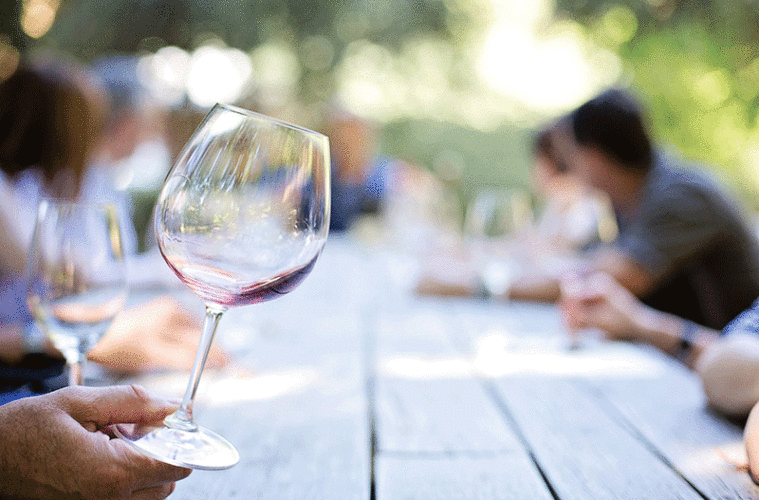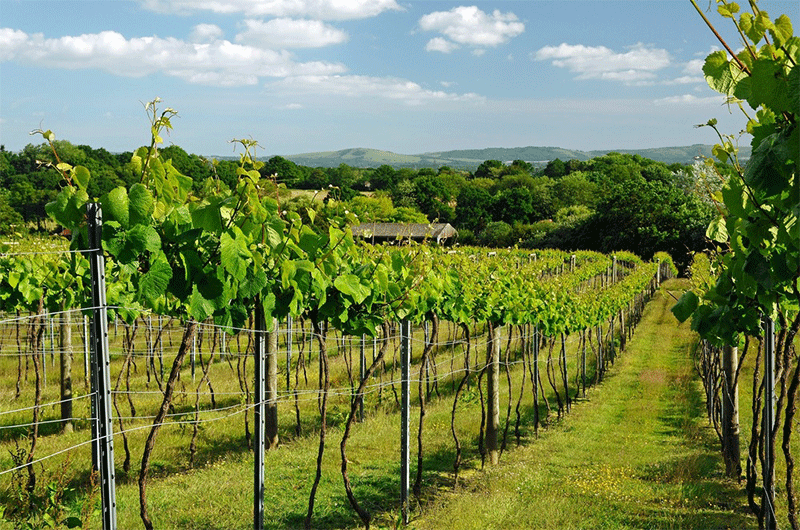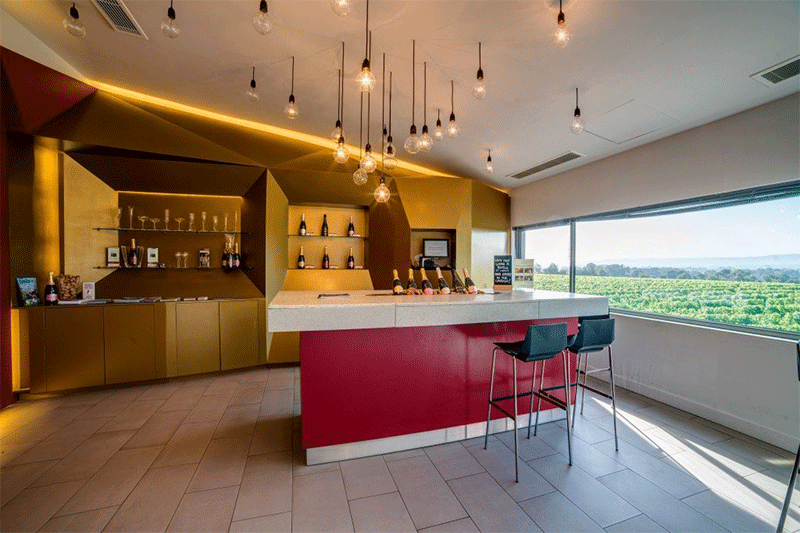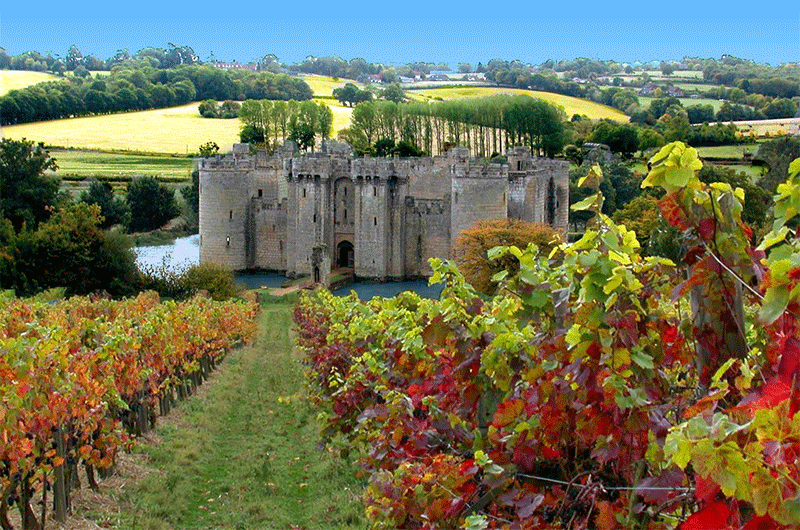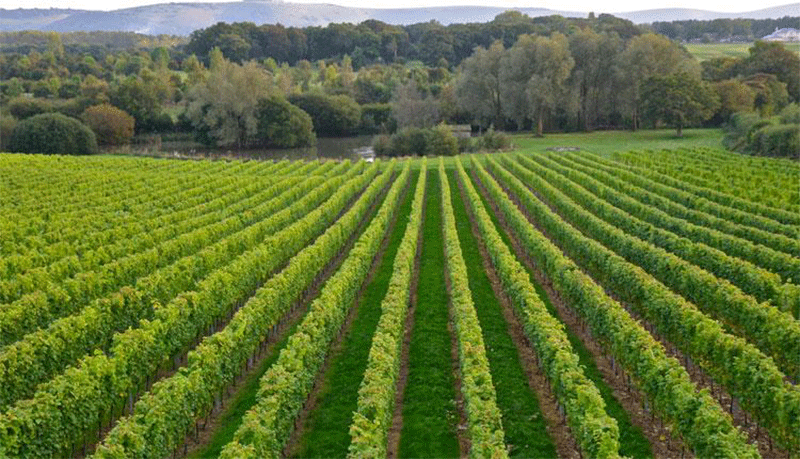There has been a surge in interest in recent years about the quality of the wine being produced in Sussex. Climate change is real and the south coast is reaping the rewards. Vineyards are taking advantage of the temperature rise in southeast England by cultivating grapes in the vine-friendly chalky soil of the Sussex countryside. What’s more, Sussex sparkling wine is being recognised for its similar qualities to Champagne.
Global warming
Scientists say worst-case global warming predictions are the most accurate, as reported in the Independent. The scientists are forecasting there is a 93 per cent chance that global warming will exceed 4C before the end of the century.
While this is bad news for the planet, global warming could lead to wider possibilities for Sussex wine producers. However, with the wine industry in Sussex relatively new on the world stage, it has potential to become pioneers in the UK’s response to climate change, by increasing its use of climate-friendly production practices.
How the warmer climate is driving cultural changes in Sussex
As well as the growth in Sussex vineyards, other cultural changes are taking hold in Sussex as a result of the warmer climate. There has been a considerable growth in the installation of swimming pools in Sussex properties by homeowners keen to take advantage of any milder weather.
Saltdean Lido re-opened last summer under fittingly, brilliant blue skies. And flamboyant Sussex properties with pools, tennis courts and picturesque lakes with rowing boats, are attracting more visitors than ever before.
Sussex is gearing up for an al fresco lifestyle beyond the short summer months of years gone by. Brighton’s streets are littered with al fresco dining opportunities. Tables and chairs spring onto pavements throughout the city as soon as the sun surfaces from behind the clouds, no matter what the season.
South African wine estate owner Penny Streeter has seen the potential in this part of the world. Her wine label, Benguela Cove, is a leading producer and wine destination situated at the start of South Africa’s Hermanus Wine Route.
Streeter purchased Mannings Heath Golf Club in Sussex in April 2016. She has already turned the 18-hole golf course into a 9-hole one, with the remaining land dedicated to vines. The attraction? The proximity of our vineyards to the sea and the slightly windy conditions shorten the shoots of the vines and make the berries and leaves smaller, thereby increasing the quality of the grapes.
Sussex vineyards
To give you a sense of the exciting possibilities ahead for Sussex wine, read our lowdown on five of Sussex’s best wine producers, all of which offer tours and tasting sessions.
Rathfinney Wine Estate
This beautiful estate is set in the heart of the Sussex countryside near Alfriston on the South Downs. Rathfinny is situated on a perfect south-facing slope, just three miles from the sea. Its climate, chalk soils and aspect make it a perfect place to produce wine. The region is producing some amazing, award winning English sparkling wines, comparable to those produced in France’s Champagne region.
This wine estate is still developing and is likely to become, not only one of the largest vineyards in England, but also one of the largest in Europe. The state-of-the-art winery here is capable of producing over 1 million bottles of sparkling wine per year. The first vintage offering of sparkly will be available this year.
Bolney Wine Estate
Set 10 miles north of Brighton, the Bolney Wine Estate is situated in the vicinity of the village of Bolney. The estate is situated on a hill, which was part of the Butting Hill One Hundred, listed in the Doomsday Book. As one of the longest established English vineyards, Bolney Wine Estate has been making award winning English wines for over 35 years.
Ridgeview Wine Estate
Situated in the South Downs National Park, this second-generation family vineyard is producing more than a quarter of a million bottles of wine each year. They export wines all over the world. The Sussex climate and soil is perfect for sparkling wine viticulture. This vineyard has played a proactive part in putting English sparkling wine on the global stage.
Sedlescombe Organic Vineyard
Sedlescombe Organic Vineyard is one of the main tourist attractions of the ‘1066 Country’ region in and around Hastings. This vineyard is England’s premier organic wine estate. It comprises of 22 acres of organically certified vineyards, and produces 30,000 bottles of ‘Estate Bottled’ organic English wine annually.
Albourne Estate Vineyard
This family-owned, boutique vineyard is just 8 miles from Brighton, overlooking the beautiful South Downs. Its location has been selected for its slope, aspect, altitude and geology. These features provide excellent drainage, low frost risk and maximum sun exposure – critical factors in achieving successful vine growth and grape ripeness at this northerly latitude.
In 2015, the vineyard’s vintage Bacchus beat 300 other entries to the accolade of English Wine of the Year. And after seven years in the making, Albourne Estate’s first sparkling wine, Blanc de Blancs, was launched last year. This is definitely a vineyard producing wines to watch out for.
Mark Driver, owner of the Rathfinny Wine Estate in West Sussex, spoke to the Telegraph: “We believe that Sussex will become synonymous with high-quality sparkling and still wine. When you go into a bar in London or Tokyo or New York in, say, 20 years time, the waiter will ask you: ‘Would you like a glass of champagne or a glass of Sussex?’”
Just as people flock to the Champagne region of France to taste the real thing, there’s absolutely no reason why Brighton can’t make it onto the map as a place to taste world-class bubbly.




